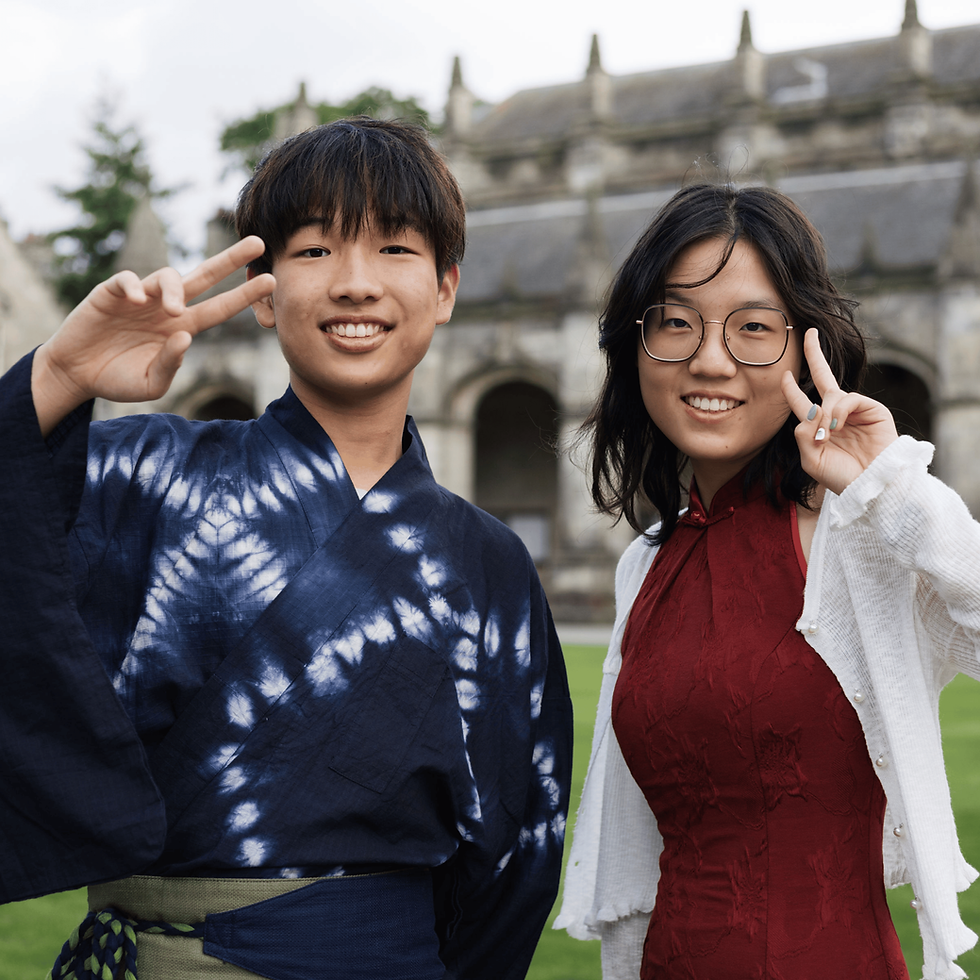GSP Spotlight: Mali Mali Green Energy Workshop
- Sep 15, 2025
- 2 min read

Through her “Glocal” Service Project, 2024 Fellow Daphne Chang introduced elementary students in Pingtung, Taiwan, to renewable energy, the use of solar panels, and the importance of indigenous voices in conversations about land and sustainability.
Daphne says, “There have been a lot of issues regarding land usage with renewable energy, consent, finance, lack of communication, and more. [...] As a small island that uses a lot of energy, Taiwan needs to implement more renewable energy to become less vulnerable and meet its 2050 net-zero goals. However, there also needs to be more communication and respect for the indigenous communities they are working with for it to be just.”

Supported by and aligned with UWC Atlantic’s Systems Transformation Pathway program, Daphne’s “Mali Mali Green Energy Workshop” brought students from Evergreen Lily Elementary School together for a 3-day storybook creation process. Over the course of the workshop, students learned about renewable energy and solar power, listened to an indigenous elder share a traditional story about the sun, and discovered the art of storytelling from a well-known Taiwanese author. Using what they learned, the students brainstormed their own ideas and shared their dreams for a just energy transition by transforming them into storybooks.

Daphne recounts, “Throughout the three-day process, I noticed the students getting more excited and more passionate, and that was really heartwarming! A lot of times, during breaks, they refused to stop working on their books and even wanted to start early. The enthusiasm made me feel like I brought these issues to students in a really great format that they could understand and personally do something about.”
The next phase in Daphne’s project is to publish the students’ stories and spread them to other communities in Taiwan. She says, “If the book can get spread around to different schools or communities, their voices and their visions for a just energy transition can be heard by more people. This impacts both the students as well as the communities that get to hear their voices and encourage them to think about the energy transition in a way they haven't before.”






Comments